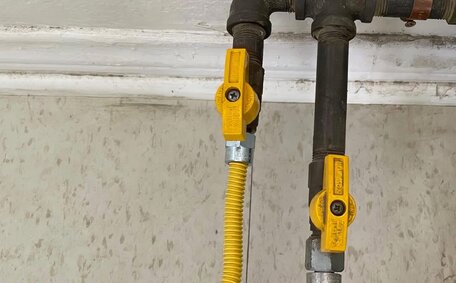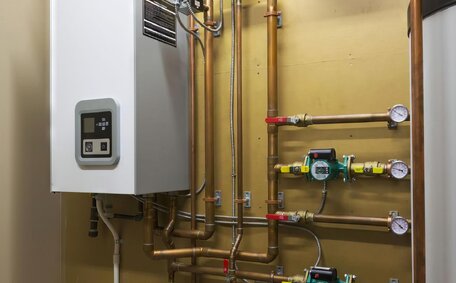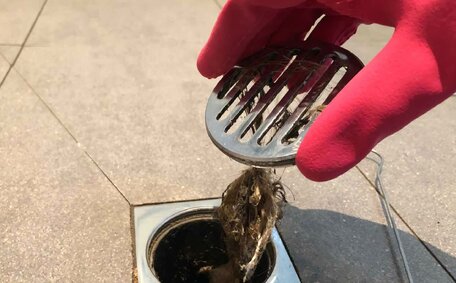Understanding gas leaks
A natural gas leak in your property arises from an unintentional release of natural gas from your gas lines or appliances. Natural gas can be odourless in domestic settings, prompting utility companies add a rotten egg smell using ethyl mercaptan, serving as a safety feature to alert you to a gas leak in your home. This feature aids in ensuring gas leak your home can be more easily detected amidst various gas emissions.
A sign gas leak can include can smell of rotten eggs, an unusual hissing sound near gas appliances, dead plants or grass near your gas line, and dirt or water being forcefully expelled into the air over gas line routes.
Indoor gas leaks pose a serious risk since they can instigate health issues from inhalation, which can lead to fires or explosions, and permit carbon monoxide to infiltrate your home from malfunctioning gas appliances.
Exposure to carbon monoxide CO, even at levels carbon monoxide tied to a gas leak in your home, can precipitate symptoms gas leak like irritated eyes, headaches, dizziness, weakness, and fatigue. Exposure to CO over prolonged periods can also exacerbate respiratory conditions like asthma. The most dire risk and long term effects to your health that carbon monoxide can present is asphyxiation, linked to a lack oxygen if a leak displaces a significant volume.
For your well-being, if you suspect a gas appliance leak at your residence, where you use gas, it’s critical to vacate the premises to avoid carbon monoxide exposure, steer clear from any ignition sources, contact emergency responders, and allow a professional to conduct an inspection.
Health effects of gas leaks
Recognising symptoms natural gas leak in your environment is essential, as they represent exposure gas with significant health impacts, both immediate and long-term. Inhaling gas can introduce hazardous chemicals into the body, a serious risk to human health, resulting in headaches, nausea, dizziness, fatigue, and throat irritation due to leak exposure. Prolonged exposure to gas carbon monoxide can result in exacerbating respiratory illnesses like asthma or COPD.
Carbon monoxide, dangerous due to gas combustion products of natural gas, is emitted whenever gas burns incompletely. Infants, young children, pregnant women, elder individuals, and those with pre-existing health conditions are especially vulnerable to complications from using gas appliances which could compromise health.
Exposure to low levels of carbon monoxide in the blood’s ability to carry oxygen and even small amounts over time can cause chronic headaches, vertigo, heart disease, and even death.
Beyond impacting air quality, natural gas also used for gas cooking remains crucial to acknowledge, as accumulating and igniting leaks can spark fires and explosions, causing severe burn injuries or structural collapse. Exposure to escaping gas can also kill vegetation, deprive pets of oxygen, and contribute to climate change since methane is a potent greenhouse gas.
If a gas leak is suspected, leave the area immediately and contact emergency services. Do not turn off any electronics or lights since an electric spark could ignite the gas. If a gas leak is suspected, leave the area immediately and contact emergency services.
Addressing exposure carbon monoxide effectively, particularly when operating gas appliances and suspecting issues, is paramount for public health and preventing potential gas-related mishaps.
Carbon monoxide poisoning
Carbon monoxide (CO), an odourless, colourless gas that can affect indoor air quality and emanate from household gas appliances such as gas stoves, is a byproduct of incomplete combustion due to insufficient oxygen. It may arise from defective openflued gas appliances such as your gas heater, gas stove, or fireplace. Vehicles, small engines, and unflued gas appliances with faults can also produce significant amounts of carbon monoxide.
CO poisoning with symptoms natural gas occurs when faulty gas heaters cause levels of carbon monoxide to build up in an enclosed space and reach dangerous low concentrations. As the levels carbon monoxide can rise, individuals may experience vision problems, loss of consciousness, or even death. Foetuses, infants, elderly people, and those with heart or lung conditions are most at risk.
Mild symptoms of gas poisoning from a natural gas leak, stemming from changing levels of carbon monoxide, include headaches, dizziness, nausea, fatigue, and confusion.
Carbon monoxide which binds to haemoglobin in the blood about 200-250 times more readily than oxygen, forms carboxyhemoglobin. This greatly diminishes the blood’s ability to carry oxygen, there no critical for when natural gas used as heating options. While exposure low in intensity may seem harmless at first, it can lead to serious long-term health issues over time.
Long-term exposure can cause neurological and cardiovascular damage.
We recommend ensuring that your gas appliances are routinely inspected with leak detection methods and properly ventilated to avoid CO poisoning.
All homes with flued gas heaters should have CO alarms installed to ensure all gas types of poisoning can be prevented and they maintain energy safe. If poisoning is suspected, immediately get fresh air and consult private health services. Administering 100% oxygen hastens the removal of CO from the body.
Other long-term health issues
Beyond immediate symptoms, experiencing prolonged symptoms of a gas leak can occur with exposure to carbon monoxide, resulting in serious long-term health problems:
- Neurological issues: Carbon monoxide binds to blood cells, reducing oxygen supply to tissues and organs like the brain. This can cause lasting neurological health risks from ambient air pollution such as memory loss, vision damage, coordination issues, and trouble concentration or thinking clearly.
- Respiratory disease: Irritant gases like nitrogen dioxide and sulphur dioxide can scar lung tissue with repeated exposure, leading to reduced lung function over time. This exacerbates conditions like asthma, bronchitis, and emphysema.
- Reproductive issues: Studies link prenatal exposure to air pollutants with higher risk of miscarriage, premature birth, low birth weight, birth defects and delayed development.
- Cancer: Benzene and radon, chemical components of natural gas, are known human carcinogens linked to exposure gas leak. Long-term exposure raises lifetime cancer risk, especially leukaemia and lymphoma.
- Mental health: Both acute and prolonged exposure can cause anxiety, depression and PTSD. The trauma of a gas leak or explosion may also contribute to substance abuse, sleep disorders and other issues.
It’s important to know about the various factors that can shape individual risk, reducing exposure to hazardous gas leaks is crucial and to pursue immediate remediation, especially in homes that use natural gas. This can prevent compounding health issues over a lifetime when gas used improperly. Installing carbon monoxide detectors is also essential to alert occupants before dangerous concentrations accumulate indoors.
What to do if you suspect a leak
If you suspect gas leak your environment, it is imperative to act swiftly and call in professionals, as gas leaks can rapidly escalate into perilous situations.
The first priority is to evacuate all occupants and pets from the area immediately. Once safely outside, to ward off gas risks which may take more than one exit route, call your local emergency number using your mobile phone or at a neighbour’s house, dialling 000.
Do not turn any electronics or lights on or off, as a spark could ignite leaking gas. Do not turn any electronics or lights on or off, as a spark could ignite leaking gas.
call our expert team at Jannali Plumbing on 1300 349 338 to manage any suspected gas leak in your property and rapidly dispatch a licensed gasfitter to your location. We are accessible around the clock for emergency leak calls and will dispatch a prompt response team armed with advanced tools to detect gas and locate the gas issue. Steer clear of attempting to fix any leaks yourself, as this task necessitates the skill of a certified gas fitter, recognised as our expert plumber.
Meanwhile, if you do suspect gas issues, make sure to notify the gas company of the situation. If you smell gas, find gas signs outside of your house like dead vegetation, bare patches in lawns, dirt blowing from pipelines indicative of a possible leak. Do not re-enter the house amid a leak your house might have until given the all-clear by emergency services and our technicians. Ventilate the area well before resettling.
Should you or your family exhibit your symptoms like dizziness, headache, or nausea from a gas leak, shut off any running appliances and a prompt medical response is vital. For less severe cases, should you be exhibiting symptoms of natural gas exposure, get some fresh air right away which helps clear the lungs.
Being vigilant and ready to respond promptly is essential, as is having your gas appliances regularly assessed; do not hesitate to get touch with Jannali Plumbing’s qualified technicians for this crucial gas safety service. Do not hesitate to get in touch with Jannali Plumbing’s qualified technicians for this crucial gas safety service. This practice significantly diminishes the risks associated with the use of gas. Connect with Jannali Plumbing to book a visit from a licensed plumber for your hot water inspections or repairs, safeguarding you and your loved ones.






